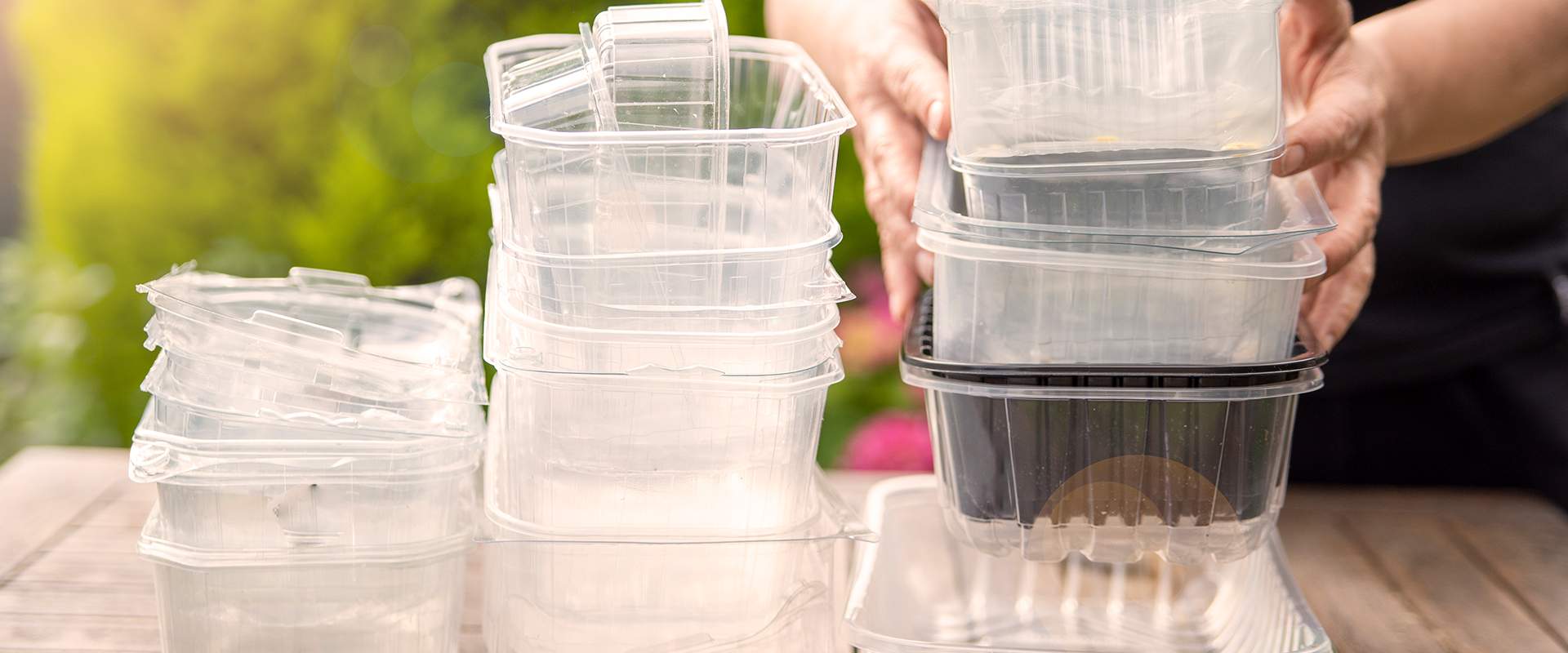
Background and challenge
With the rise of grab-and-go snacking, foodservice companies are looking for innovative packaging formats that resonate with consumers. Simultaneously, consumers are increasingly conscious of the environmental impact of their use of packaging, which is driving demand for sustainable forms of packaging. Sustainable packaging can refer to packaging that has one or more of the following characteristics: biodegradable/compostable, reusable, recyclable or made with recycled content. The resulting transition to more sustainable packaging is being facilitated by a grassroots effort of consumer activism, corporate stewardship and states/municipalities across the U.S. that are implementing regulations. In response, converters are shifting focus to substrates (e.g., resins) and formats (e.g., clamshell, bowl) that incorporate elements of sustainability ― but existing offerings each involve trade-offs between functionality and sustainability.
A leading private equity firm set out to develop a transition-to-sustainable-packaging strategy within foodservice packaging. The company wanted to generate a long-term outlook for the various substrates and formats, including demand shifts among resins, and key technology trends, in order to see where pockets of growth existed.
The company enlisted L.E.K. Consulting to help it gain a perspective on which areas of this evolving market appeared most attractive for investment, which customer segments would be more receptive to sustainable offerings and which converters had the capabilities to supply these offerings.
Approach and recommendations
We started by mapping the fulsome packaging landscape to assess the size of the opportunity specific to foodservice, including the existing technologies and the different types of substrates and formats. L.E.K. included within this mapping a comprehensive view of emergent sustainable substrates made of new resin types (e.g., post-consumer recycled content, biodegradable/bio-resin-based packaging).
Team members from L.E.K.’s Boston office then developed a long-term outlook for each of these substrates and formats. A key challenge was determining how to incorporate the potential impact of key technology trends on sustainability, such as limitations from recyclable/closed-loop infrastructure, and potentially disruptive technologies (e.g., depolymerization, eco-engineering, advanced sorting).
L.E.K. then segmented the customer base (from “eco-warriors” to “price particular”) and assessed the purchasing behavior of each end customer to understand priorities by customer segment. By evaluating the end customers’ needs and perspectives as they related to sustainable packaging uptake, this enabled identification of a “sweet spot” for a sustainable packaging-focused investment thesis.
L.E.K. also assessed the competitive landscape ― including showing each converter’s alignment of capabilities to different substrates and formats ― to identify the potential landscape for investment. This framework allowed L.E.K. to provide intelligence on which converters were positioned to address highly attractive segments.
Results
The private equity firm leveraged the long-term outlook and the identified set of investment options to develop its investment thesis, which ultimately led to a successful acquisition in the sustainable packaging space.
10302019081027
